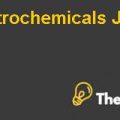Although 65% occupancy rate was generating enough revenue for Damai Lovina Villas, a boutique hotel, but the company wanted to occupy an eminent standing in the market by increasing the utilization rates. The question that the cases poses whether leveraging the Corporate Social Responsibilities (CSR) activities and taking initiative in multiple environmental programs that adhere the company with certification and standardization would be a right track to meet the desired objectives?
For each particular company, in the context, the meaning of sustainability differs, including the value creation issues stemming from efficiency and productivity, innovation and repositioning and strategic visioning.
This case comprise of a self-analysis framework (1) to determine an organization’s social and environmental activities, (2) to evaluate the sustainability activities of multiple voluntary environmental program (VEP), and (3) to analyze the alignment between the company’s selected VEPs and its sustainability programs.
Assessment of this framework describes whether VEPs could lead a company to strategic competitive advantage and at what cost. This case evaluate the issues in strategic differentiation and standardization for MBA or advanced undergraduate course. It also explores the issues in courses that comprise of the topics such as international management, eco-tourism, sustainable enterprise, and Corporate Social Responsibility.













